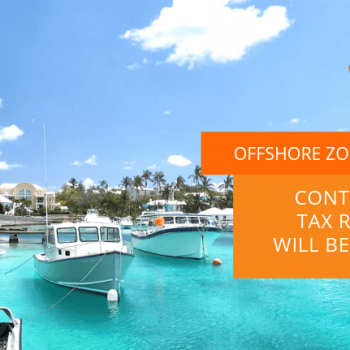
- Awara
- November 28, 2018
- 705
Don’t Lose Revenue in 2019 Because of a New VAT Rate
Due to Inaccurate Specification of Prices in Contracts Your Revenue Could Be at Risk. Check the Terms of Pricing in Your Agreements in the Context of Increasing the Tax Rate of VAT up to 20%
Starting from January 1, 2019, the VAT rate will be set at 20% instead of 18%.[1]
The new rate applies to:
- goods shipped after January 1, 2019;
- works performed after January 1, 2019;
- services rendered after January 1, 2019.
VAT is an indirect tax, the amount of which is imposed on the taxpayer in addition to the price (tariff) of the goods (work, services) to be sold, or property rights transferred.
The obligation to calculate the amount of VAT, including the definition of the tax rate, is established by law. Its application does not depend on the agreement of the parties.
Thus, starting from January 1, 2019, the seller is obliged to present the amount of tax calculated at a tax rate of 20%. This is valid for payments to the buyer of goods (work, services) and property rights.
As indicated by the Federal Tax Service of Russia, amending an agreement to change the amount of the VAT rate is not required[2]. At the same time, the parties to the agreement are entitled to clarify the settlement procedure and the cost of the goods sold.
Based on paragraph 2 of Art. 424 of the Civil Code of the Russian Federation, the change of the price after the conclusion of an agreement is allowed in the cases and on the conditions stipulated by the agreement, the law, or in the manner prescribed by law.
From the provisions of Articles 424, 450, 451 of the Civil Code of the Russian Federation, it follows that a change in the VAT rate is not a basis for a unilateral change in the terms of the agreement by the seller. Accordingly, changes in the price of the agreement are allowed by mutual agreement of the parties.
Current court practice recognizes the amount of VAT as part of the price of an agreement[3]. The courts take a similar position in the case of incorrectly specifying the VAT rate in an agreement, refusing the sellers to recover from the counterparties VAT amounts in excess of the price established by the agreement[4].
The courts indicate: if the agreement does not directly indicate that the price established therein does not include the tax amount and does not follow otherwise from the circumstances preceding the conclusion of the agreement or other terms of the agreement, the amount of tax presented to the customer by the contractor is allocated by the latter based on the price specified in the contract, determined by the calculation method (clause 4 of Art. 164 of the Tax Code of the Russian Federation)[5].
Thus, if in the agreement the price is defined as a certain sum, including VAT, but the rate and amount of VAT, as well as the cost of goods without VAT is not specified, then without making changes to the agreement the following will occur: the cost of goods without VAT will decrease, and the total the cost with VAT will not change.
For example, if the price terms in the agreement are formulated as:
In this case, in 2018, revenue without VAT will be 100 rubles. And in 2019, revenue without VAT will be 98.33 rubles.
If the seller is satisfied with a decrease in revenue, the terms of the agreement on price need not be revised.
Consider another option. The price in the agreement is defined as the amount of money to be increased by VAT without specifying the rate and amount of VAT. At the same time, the total value including VAT is not specified in the agreement.
With this wording, if you increase the VAT, the agreement price without VAT will not change.
Clarification of the terms of the agreement price is necessary in the following cases:
-
The price is defined as the amount of money to be increased by VAT. At the same time, the rates and the amount of VAT are not specified, only the total cost with VAT is indicated in the agreement.
was: 100 rubles, plus VAT at a rate in accordance with the current legislation of the Russian Federation on taxes and fees, the total cost with VAT is 118 rubles. became: 100 rubles, plus VAT at a rate in accordance with the current legislation of the Russian Federation on taxes and fees, the total cost with VAT is 120 rubles.
This option provides for an increase in the price of the agreement by the difference in VAT rates of 20% and 18% in terms of the total.
-
The price is defined as a sum subject to an increase by VAT with a specification of the rate of 18% and (or) the amount of VAT.
was: 100 rubles, plus VAT at the rate of 18% or 100 rubles, plus VAT of 18 rubles, became: 100 rubles, plus VAT at the rate of 20% or 100 rubles, plus VAT of 20 rubles.
This option provides for an increase in the agreement price as a result of an increase in the VAT rate by 2%, respectively, in percentage or total terms.
-
The price is determined in monetary terms with an indication of the inclusion in it of the VAT and clarification of the rate of 18% and (or) the amount of VAT.
This option provides for an increase in the agreement price as a result of an increase in the total agreement price by the difference in VAT rates of 20% and 18% in total terms.
was: 118 rubles, including VAT of 18% or 118 rubles, including VAT of 18 rubles, became: 120 rubles, including VAT of 20% or 120 rubles, including VAT of 20 rubles. Thus, despite the fact that the increase in the tax rate on VAT occurs “automatically”, by virtue of the law, it can affect the procedure for settlements with the counterparty, and in some cases affect the value of goods sold. In this regard, it seems appropriate to clarify the terms of the agreement on the price. This can be done, for example, by entering into an additional agreement. Conducting such work on agreeents seems necessary to prevent disputes with contractors and tax authorities. A number of questions are raised by so-called “transfer agreements”, the discharge of obligations under which occurs both in 2018 and in 2019. According to the above explanations of the Federal Tax Service of Russia, as a general rule, with prepayment received in 2018, the seller must calculate VAT at the rate of 18%. When shipping in the new year, you will need to apply a rate of 20%, and you can take a tax at a rate of 18% for deduction. If the terms of the agreement price and VAT are not settled in a timely manner, in order to avoid tax risks, it is advisable to make final payments under the agreement after the actual shipment of goods (performance of works, rendering services), or transfer of property rights. Special rules are applied when making payments to a foreign counterparty―the tax agent withholds and transfers VAT to the budget at the time of payment. If the prepayment is received in 2018, the tax agent must transfer VAT at the rate of 18%. For subsequent shipment in 2019, there is no need to calculate the tax. When applying the new VAT rate, there are no exceptions for goods (works, services) sold under agreements concluded before January 1, 2019, including state and municipal contracts. Laws on procurement (Federal Law dated July 18, 2011 No. 223-FZ “On Procurement of Goods, Work, Services by Certain Types of Legal Entities”, and Federal Law dated April 5, 2013 No. 44-FZ “On the Contractual System in the Procurement of Goods, Work, and Services for state and municipal needs”) establish special requirements for the price of goods, works and services. From the analysis of these laws, it follows that, as a general rule that the price cannot be changed. The increase in the VAT rate is not highlighted as a separate basis for changing the contract price. At the same time, the Ministry of Finance of Russia explained that in some cases the contract price may be changed in accordance with the procedure established by legislation on the contract system, including when the VAT rate is changed. This applies to the following contracts: Based on the above, it seems necessary to make an inventory of existing contracts and settlements on them and determine those contracts under which the shipment (transfer) of goods (works, services), property rights will be made in 2019. In order to avoid disputes in the future, it is recommended to conclude additional agreements to such agreements, indicating in them the price and VAT conditions agreed by the parties. Our experts are ready to assist your company with checking contracts and making all necessary changes due to the new VAT rate. [1] Federal Law dated 03.08.2018 No. 303-FZ (as amended on 30.10.2018) “On Amendments to Certain Legislative Acts of the Russian Federation on Taxes and Fees”. [2] Letter of the Federal Tax Service of Russia dated 23.10.2018 No. SD-4-3 / 20667 @ “On the Procedure for Applying the Tax Rate on VAT During the Transition Period”. [3] See, e.g.: the Determination of the Supreme Court of the Russian Federation No. 308-ES17-9467 dated 23.11.2017, the Resolution of the Presidium of the Supreme Arbitration Court of the Russian Federation dated 22.09.2009 No. 5451/09, the Resolution of the FAS Central Region dated 20.03.2014 regarding case No. А62-87 / 2012”. [4] See, e.g.: Determination of the Supreme Court dated 23.11.2017 No. 308-ЭС17-9467 and dated 06.04.2016 No. 309-ЭС16-1998 regarding case number A60-5972/2015. [5] Clause 17 of the Resolution of the Plenum of the SAC dated 30.05.2014 № 33 “On Certain Issues Arising in Arbitration Courts in Cases Related to the Collection of Value Added Tax”.Price conditions in procurement contracts
Awara Services
Our Contacts


